Low-Impact Forestry
What is the Low-Impact Forestry Program?
The Low-Impact Forestry (LIF) program at MOFGA is a group of loggers, foresters, landowners, farmers and interested persons educating about, practicing and advocating for ecologically-based and economically-sound forest practices. We practice and endorse forestry that seeks to reduce the known harmful impacts of logging, and promote the social and ecological benefits. The LIF program hosts workshops year-round covering all sorts of forestry related topics from logging with draft animals to home firewood production. The LIF staff also participates in collaborative logging projects that explore creative forest management and contracts that benefit both landowner and logger.

The 9 Principles of Low-Impact Forestry
1. LIF recognizes that forest ecosystems are more complex than we currently understand, and therefore operates thoughtfully with caution and humility as first principles
2. LIF believes that wood products can be grown and harvested in a way that maintains the other ecosystem services that fully functioning forests provide
3. LIF requires that harvesting operations minimize damage to unharvested trees, soils, and water quality
4. LIF promotes growing and harvesting durable, long-lasting and high-value forest products
5. LIF recognizes the value of forests as a climate change mitigation tool and promotes carbon sequestration and storage as an important goal of forest management
6. LIF incorporates climate change adaptation and resilience strategies in forest management plans, forest roads and trails, recreational and other activities, and harvests
7. LIF considers forest management on a multi-generational timescale
8. LIF believes that managed multi-aged forests with late-successional characteristics, large-diameter trees, and high stocking should be more common on the landscape
9. LIF promotes payment structures that allow land managers and forest practitioners to do careful work while making a sustainable living
Workshops and Events
The Low-Impact Forestry program hosts seminars and workshops for all skill levels and interests. For a complete listing of upcoming LIF events and registration information please visit the LIF Trainings page.
Featured Videos
Playlist
Featured Articles
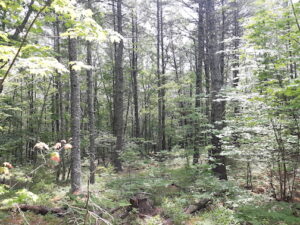
Balancing Order and Ecology in the Forest
By Noah Gleason-Hart When folks envision a healthy forest, they often imagine neat, open, parklike stands with little understory and no dead or declining trees. In truth, at least in the woods, messy is good. A vibrant, functioning forest is a maze of complexity and “messiness.” Dead, diseased and dying trees coexist alongside vigorous, fast-growing
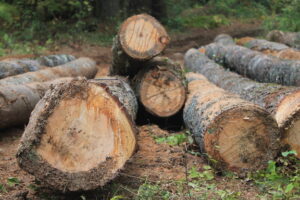
Climate Mitigation and Adaptation in Your Forest
By Noah Gleason-Hart As a management philosophy, low-impact forestry recognizes that forests have an important role in reducing the effects of climate change and that we have an obligation as thoughtful managers to incorporate climate mitigation into our stewardship decisions. What does this mean, and how could a commitment to carbon forestry impact the way
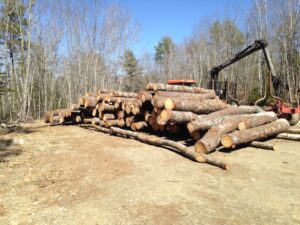
Guiding Principles for Low-Impact Forestry
By Noah Gleason-Hart In a low-impact forestry system, humans have an active role to play as forest consumers and stewards as long as we acknowledge our limited understanding of forest ecosystems. LIF recognizes that forest ecosystems are more complex than we currently understand and therefore operates thoughtfully with caution and humility as core principles. Another
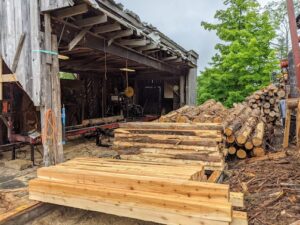
The Local Wood Movement and the Small Sawmill Economy
By Noah Gleason-Hart As MOFGA members, we all recognize that eating local, sustainably grown food is good for us, good for the environment, and good for our communities. However, we sometimes forget to extend our view beyond the field edge to see that local wood provides similar benefits. “Know you farmer” is a catchphrase folks
Forestry as if the Climate Mattered: Carbon Considerations
By Mitch Lansky If the future really mattered, how would forests be managed to improve, rather than degrade, future timber values? How would trees be cut to minimize damage to the residual forest? How would foresters measure success toward minimizing damage? How would loggers be paid to lower logging impacts? How would forests be managed
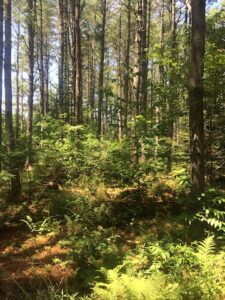
Managing Invasive Forest Plants Organically at MOFGA
By Noah Gleason-Hart, MOFGA’s Low-Impact Forestry Specialist Like many landowners in Maine, MOFGA has a significant and growing non-native and invasive plant population in our forest. We’ve carried out some control work in the past, but the recommendations in our recently updated forest management plan made it clear that if we intend to maintain an





